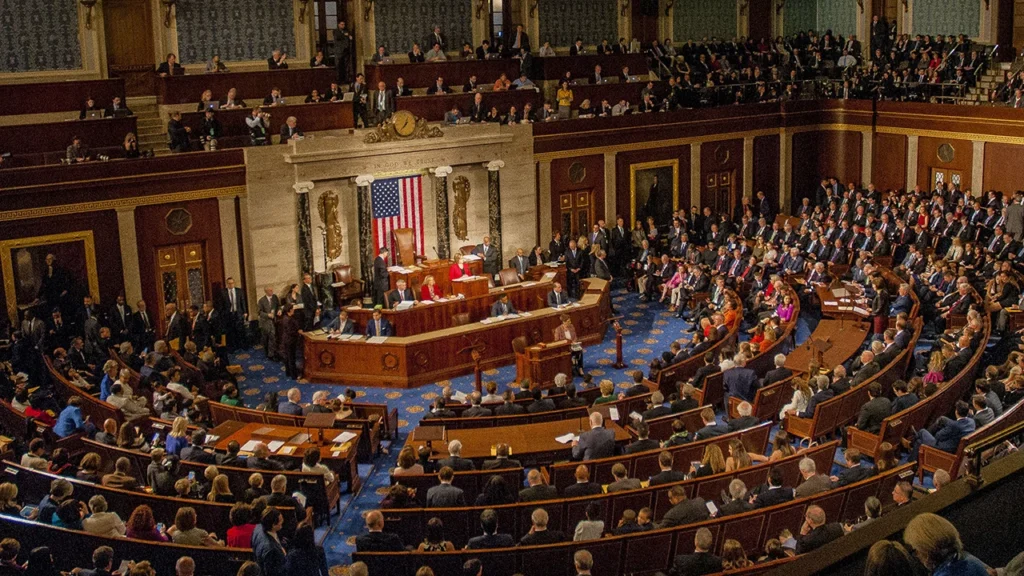Quick Take
- Clarity Act excludes in-game items from “digital commodities” under US regulation
- Immutable says AAA studios now have clear path to token launches by end of year
- Part of Crypto Week in Congress as three major digital asset bills advance
The United States Congress is on the verge of passing the most comprehensive digital asset legislation in years, and it could have lasting implications for the gaming industry. One bill in particular, the Digital Asset Market Clarity Act, known as the Clarity Act, introduces language that directly excludes video game assets from being treated as digital commodities.
The change could finally give AAA studios and game developers the legal clarity they have long lacked when it comes to launching tokenized in-game assets.
Immutable co-founder Robbie Ferguson believes the impact will be immediate. In a statement shared with Juice Gaming News, Ferguson said, “The top 5 gaming studios alone have a combined MAU of 1.2 billion users… now that the Clarity Act is passed, every major studio in the world will be empowered to launch a gaming token by the end of the year.”
A Legal Line for Game Economies
The Clarity Act amends Section 1a of the Commodity Exchange Act to define a new category called digital commodities. In doing so, it explicitly removes collectibles, virtual land, merchandise, and video game assets from that category. While not a blanket exemption, this language gives developers a much firmer legal foundation to tokenize game items without the risk of those assets being retroactively classified as securities or commodities.

The update means studios will be able to tokenize skins, gear, currencies, and player-owned economies with more confidence. It also addresses a longstanding issue in Web3 gaming. Most tokens have been launched without meaningful in-game use due to legal caution.
Immutable argues this is what has stifled serious growth. Without certainty, many teams opted for meme tokens that sidestepped regulatory scrutiny but offered little utility. That limited both retention and long-term value.
“Tokens are one of the most powerful growth engines for games,” Ferguson wrote. “They can reduce user acquisition costs, boost retention, and enable new economic models that align players and developers.”
Crypto Week and Regulatory Momentum
The Clarity Act is one of three major crypto-related bills advancing in Congress during what lawmakers have dubbed Crypto Week. The others are the GENIUS Act, which establishes stablecoin rules, and the Anti-CBDC Surveillance State Act, aimed at limiting government digital currencies.
While those focus on the financial layer, the Clarity Act stands out for its direct impact on game studios. It marks the first time US law has formally addressed the regulatory status of tokenized game assets, something developers and infrastructure providers like Immutable have been pushing for since at least 2018.
Co-founder of Sky Mavis Jeffrey Zirlin added that momentum is starting to shift. “As money flows into ETH, it will flow downstream into the application layer of crypto, which is where we have the most fun and get people actually using the technology for its everyday benefits.”
What It Means for Immutable and Its Partners
Immutable says it has already partnered with three multi-billion dollar gaming studios and believes the Clarity Act will accelerate their token plans. The company’s focus has long been on enabling true digital ownership and interoperable economies through its Layer 2 scaling platform on Ethereum.
According to Ferguson, this legislation represents a profound shift for the industry and could dissolve the outdated distinction between Web2 and Web3 gaming.
By giving developers a safe path to launch tokens with real utility, it could also pressure current Web3 games to rebuild their token economies around long-term value rather than hype.
More clarity does not guarantee good games. But for developers building ambitious digital worlds, it could be the green light they have been waiting for.







